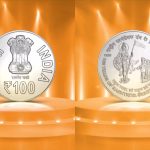Nepal has been thrown into a deep political and constitutional crisis after Prime Minister KP Sharma Oli resigned from his position following weeks of violent anti-government protests. According to reports, Oli is also making preparations to leave the country, a move that underscores the gravity of the turmoil facing the Himalayan nation.
The Spark of the Protests
The demonstrations, which began as peaceful anti-corruption rallies, escalated sharply in recent weeks. Citizens accused the government of systemic corruption, poor governance, and failure to address rising unemployment. The protests turned deadly when clashes erupted between police forces and demonstrators in Kathmandu and several other urban centers.
At least 16 people have died in violent incidents linked to the unrest, while hundreds of others have been injured. The use of force by security personnel—including tear gas, rubber bullets, and baton charges—fueled further anger on the streets.
Oli’s Decision to Resign
Oli, a controversial figure in Nepali politics who has held the post of Prime Minister multiple times, announced his resignation after pressure mounted from both the public and within political circles. His critics accused him of consolidating power, ignoring democratic norms, and alienating coalition partners.
Resignation came as a last resort after his government lost credibility and legitimacy in the eyes of large sections of society. Political insiders revealed that Oli had considered a cabinet reshuffle and early elections but ultimately stepped down amid spiraling violence.
Plans to Leave the Country
What has shocked observers is Oli’s reported plan to flee Nepal. Local media outlets suggest that his inner circle has been arranging for a possible exit, possibly to a neighboring country, citing fears of legal action and safety threats. Analysts believe Oli may seek temporary asylum abroad, though this remains unconfirmed.
His potential departure raises questions about accountability. Opposition parties argue that leaving the country would mean avoiding responsibility for policies that led to the crisis, while Oli’s supporters claim he is being unfairly targeted.
Political Reactions
The Opposition and civil society groups have welcomed the resignation but warned that it is not a solution in itself. They insist that systemic reforms, constitutional amendments, and stronger anti-corruption measures are essential to stabilize the country.
Meanwhile, Oli’s party—the Communist Party of Nepal (Unified Marxist-Leninist)—is facing deep divisions. Some leaders remain loyal, while others have distanced themselves, urging the party to rebuild its image by focusing on governance and people’s issues.
Impact on Nepal’s Stability
The resignation adds another chapter to Nepal’s turbulent political history. Since transitioning from a monarchy to a federal democratic republic in 2008, the country has witnessed frequent government changes, with instability becoming a hallmark of its political system.
The immediate concern now is who will lead the caretaker government. The President is expected to consult major political forces to ensure a peaceful transition of power.
Regional Concerns
Nepal’s political instability has regional implications. The country is strategically located between India and China, both of which have significant interests in Kathmandu. India has traditionally played an influential role, while China has expanded its presence in recent years through investments and infrastructure projects.
A weakened or unstable government could provide both neighbors with opportunities to extend their influence, potentially deepening geopolitical competition in South Asia.
Public Sentiment
For ordinary citizens, Oli’s resignation is both a victory and a reminder of the challenges ahead. Protesters have vowed to continue demonstrations until systemic changes are implemented. “This is not just about Oli—it’s about fixing the entire system,” said one student leader in Kathmandu.
The call for transparency, accountability, and reform resonates strongly among the youth, who make up a large portion of the population and have been at the forefront of the protests.














